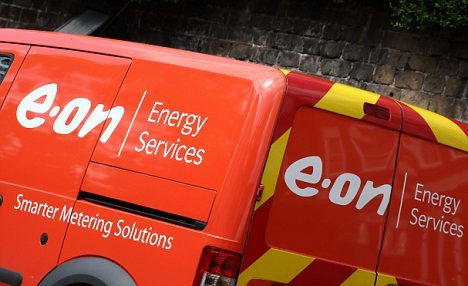
Shareholders of Germany’s largest utility are set to vote on its breakup as some in the investment community question the value in EON SE’s split to focus on renewable energy, networks and retail customers.
Owners of the Essen-based company meet Wednesday to finally decide on a strategy unveiled in 2014 to spin off its fossil-fuel plants and trading business into a separate company called Uniper. The plan needs a 75 percent majority at the annual general meeting before the conventional power station business can be listed as early as August. The utility’s supervisory board has already approved the breakup.
EON now faces headwinds from its share of funding Germany’s exit from nuclear power, which Chief Financial Officer Michael Sen has said may force the utility to postpone spending, cut costs and prompt it to raise capital. Uniper, which started independent operations in January, plans to sell at least 2 billion euros ($2.3 billion) of assets and cut expenses as wholesale power prices fell to the lowest in more than decade .
“Neither the new EON nor Uniper appear massively attractive given the earnings outlook and poor balance sheets,” John Musk, an analyst at RBC Capital Markets, said by phone from London.
High Valuation
Knight Vinke Institutional Partners called on EON’s board to further separate its regulated network business. The unit would command a “very high valuation multiple” that would support more debt and a higher dividend, the New York-based activist shareholder said last month in a letter to investors.
EON intends to keep its network business, according to Carsten Thomsen-Bendixen, a spokesman for the utility.
EON has fallen 2 percent this year, and is down 38 percent since announcing the spinoff plan in November 2014. RWE has gained 4.4 percent this year, while Germany’s benchmark DAX stock index has dropped 6.2 percent.
Out of 31 analyst ratings, 15 recommend buying EON and 10 say hold. Only 6 say investors should sell. EON should have a “positive financial net debt position by 2018,” while Uniper’s asset disposal target can be “comfortably achieved,” Sanford C. Bernstein & Co. analysts including Deepa Venkateswaran wrote in a research note after the utility’s capital market day late April in London.
“I am convinced that there is a prospect for both companies to develop, with completely different businesses,” Uniper Chief Financial Officer Christopher Delbrueck said by phone from Dusseldorf. “Both address a demand in the market.”
Lesser Plan
EON’s breakup lost some of its attraction when it had to cancel the original plan to include nuclear plants in the spinoff as Germany moved to keep utilities from avoiding their cleanup liabilities, Lueder Schumacher, an analyst at Societe Generale SA, said by phone from London. Still, the AGM’s approval this week is a formality, he said.
EON plans to distribute 53 percent of Uniper’s shares to existing shareholders, giving one Uniper share for 10 EON shares, before eventually selling the remaining stake.
RWE AG, EON’s main competitor in its home market, followed a year later with its own plan to separate its renewables and grid business. It will only sell about 10 percent of the new company in an initial public offering this year. While more stakes may be sold, RWE intends to keep a majority.
“RWE’s split plans are more clear-cut” compared with EON’s, RBC’s Musk said. The new company’s “IPO will raise new equity which helps the parent balance sheet,” he said.